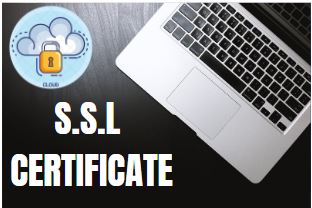
SSL stands for Secure Socket Layer (SSL).
Secure Socket Layer Certificate is a bit of code on your Customer’s web server that secures online communications, such as logins, passwords, credit card numbers submitted to your website and sensitive data of any kind.
It inspires trust which helps customers gain the confidence to conduct transactions on a web site. SSL Certificates encrypt information passed from the server, therefore, making it impossible for someone to intercept the data. SSL Certificates in Kenya are mostly used to protect e-commerce transactions, sensitive information that is sent over the internet. SSL certificates include the following information: – Name of the certificate holder -The certificate’s serial number and expiration date -A copy of the certificate holder’s public key -The digital signature of the certificate-issuing authority
SSL Certificates are used by Customers on: .Web & Mail servers .Forums .Blogging platforms .E-commerce stores .Business Intranets and Extra-nets .All Types of Control Panels .Consumer Portals e.t.c.
Types of SSL Certificate
Instant Issuance SSL Certificates: These SSL certificates can be issued within 10 minutes. One simply confirms domain ownership through a validation email.
Fully Validated SSL Certificates: They assure potential clients and partners that indeed an organization exists on the ground and is legitimate. As such, they require documentation of their existence and registration by the relevant authority.
Wildcard: It enables one to secure all the sub-domains of a given domain within a single SSL certificate. As such Wildcard SSL certification is ideal for users who may require additional sub-domains essential to running their organizations. Extended Validation (EV) SSL Certificate: This calls for extensive checks, in the form of documentation, as to the legitimacy of the organization and person requesting the same before they can be issued. Organizations issued with EV certification have their names highlighted in green on the address bar of search engines.
Multi-Domain (SAN/UC) SSL Certification: -SAN: Subject Alternative Name -UC: Unified Communications This allows one to register a host of domains and sub-domains in a single certificate. Unlike Wildcard, it allows one to transcend different entities for example- .org for organizations; .co.ke for Kenyan companies when creating the sub-domains (e.g. https://sales.yourdomain.co.ke and https://sales.your domain.org).
When an SSL certificate is present on a site, the site’s URL will display as ‘HTTPS’ and you’ll see a green lock next to the words ‘Secure’ in the URL window. HTTPS indicates that the site protects user data and ensures that the user is connected to a site.
HTTPS stands for (Hypertext Transfer Protocol Secure). HTTPS is the secure version of HTTP, the protocol used for communication between your website and the internet browser a visitor is using. If your website is secure, it will have “https://” in front of the web address instead of “https://”. When your website is secured with an SSL certificate, HTTPS will appear in your website’s URL.
Reasons to Secure Your Website
Authentication -helps verify ownership of your website and ensures the safety of your visitor’s information on your site. Data integrity- is about whether the data on your site has been tampered with while it’s in transit. Technologically inclined people can tamper with the data transmitted from your server back to the client. Encryption- refers to the security of communication between the client and the server and it ensures no one else can read the information being transmitted
SSL Certificate ensures secure communications between a website and an internet browser using 256-bit encryption. When installed on a web server, it activates the padlock and the https protocol and allows secure connections from a web server to a browser.
(Securing your website is an absolute must if you want to be competitive online and build trust with your customers.)

